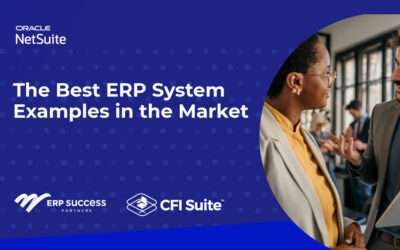Boasting one of the world’s most established quick service restaurant (QSR) sectors, the US is home to nearly 200,000 QSR establishments that collectively employ nearly 4 million people. By serving meals at an affordable price point quickly, QSRs like McDonalds, Chick-fil-A and Subway consistently rank as sector leaders.
They has adapted to the changing times and clearly continue to attract customers despite the COVID-19 pandemic, with the Centers for Disease Control (CDC) reporting that about one-third of American adults eat fast food on any given day. That’s over 84 million people who reported that they had eaten fast food in the past 24 hours.
With a lot of mouths to feed on a daily basis, the QSR industry needs robust business software that not only helps the restaurants manage their current operations but also helps them scale up, expand, add new franchisees and move into new geographic regions.
Unfortunately, many restaurants rely on manual processes and spreadsheets, and disparate software systems to run their operations. These ineffective approaches lead to low levels of operational visibility (and especially when companies have multiple locations scattered across different states), poor inventory management and a lack of communication across departments and stores.
Game-Winning Advantages
Right now, sales, cost of goods and labor management are among the key challenges that QSRs are working through. For example, many of these establishments rely on QuickBooks for sales, but this rudimentary platform doesn’t provide real-time visibility or instant access to a company’s performance metrics. Often, by the time a manager or leader gets a report, the data in it is already “yesterday’s information” and no longer relevant or actionable.
With NetSuite in place, the same executives have all of the information they need right at their fingertips in a user-friendly dashboard or report format. A powerful financial platform that incorporates many other functionalities—and that easily integrates with many outside applications—NetSuite provides the core capabilities that QSRs need to be able to grow and thrive, and it’s all under one roof.
Consider these “wins” that all companies get when they work with ERP Success Partners to implement and use NetSuite:
1
NetSuite financial reporting gives a QSR’s finance and accounting teams powerful tools to analyze and display data.
2
It also helps them save time with prebuilt financial reports that are easily tailored to highlight specific results.
3
Finance teams can develop custom reports with multiple versions using the right layout for each audience.
4
They can also combine financial, statistical and operational data with multidimensional analytics to glean new insights into performance and give QSRs a comprehensive view of their businesses.
5
With NetSuite, QSRs can identify trends as they develop, take action and monitor results in real time.
6
They can also diagnose financial issues on the fly, and drill down to individual transactions to quickly diagnose and correct problems.
NetSuite also provides customized financial reports with multiple layout options, an easy-to-use report builder, and sophisticated business intelligence tools that allow companies to combine, analyze and share information across the organization. The QSR that’s still using QuickBooks and spreadsheets doesn’t have access to these game-winning advantages. In fact, the restaurant is heavily reliant on systems that throttle its growth and profitability instead of supporting it.
Maximizing the Benefits
An implementation partner that’s worked with many QSRs, ERP Success Partners helps restaurant operators realize all of the benefits that come with using NetSuite. Any restaurant that’s moving off of QuickBooks, for example, will get an instant “win” once NetSuite begins generating real-time data and reports.
And instead of it taking two weeks to track down information across multiple locations and compile that data into a report for sharing, QSRs get the information they need with just a few mouse clicks. Even better, that data is current, relevant and still very actionable (versus the 2-week-old data that’s generated and shared through manual systems). Month-end closes are easier and faster, and company leaders have the information they need to make fast, informed decisions.
“By having a single source of truth, an ERP can readily generate valuable reports and analytics at any time. The software allows you to analyze and compare functions across departments without the hassle of multiple spreadsheets and emails,” SelectHub points out. “Standard financial reports such as income and cash flow statements generally are built-in and generate custom reports without IT intervention.”
A Single, Scalable Foundation for QSRs
Today’s restaurants need a single, scalable foundation to connect data sources and effectively manage their businesses. For franchisors, restaurants and hospitality groups, NetSuite delivers a modern and lightweight restaurant software that helps drive revenue and reduce costs.
“With a solid foundation of back-end financials and inventory in a unified cloud platform,” NetSuite says, “restaurants can elevate their business by adding the functionality required to meet their changing business needs including point-of-sale integration, commissary and franchise management, and more.”






